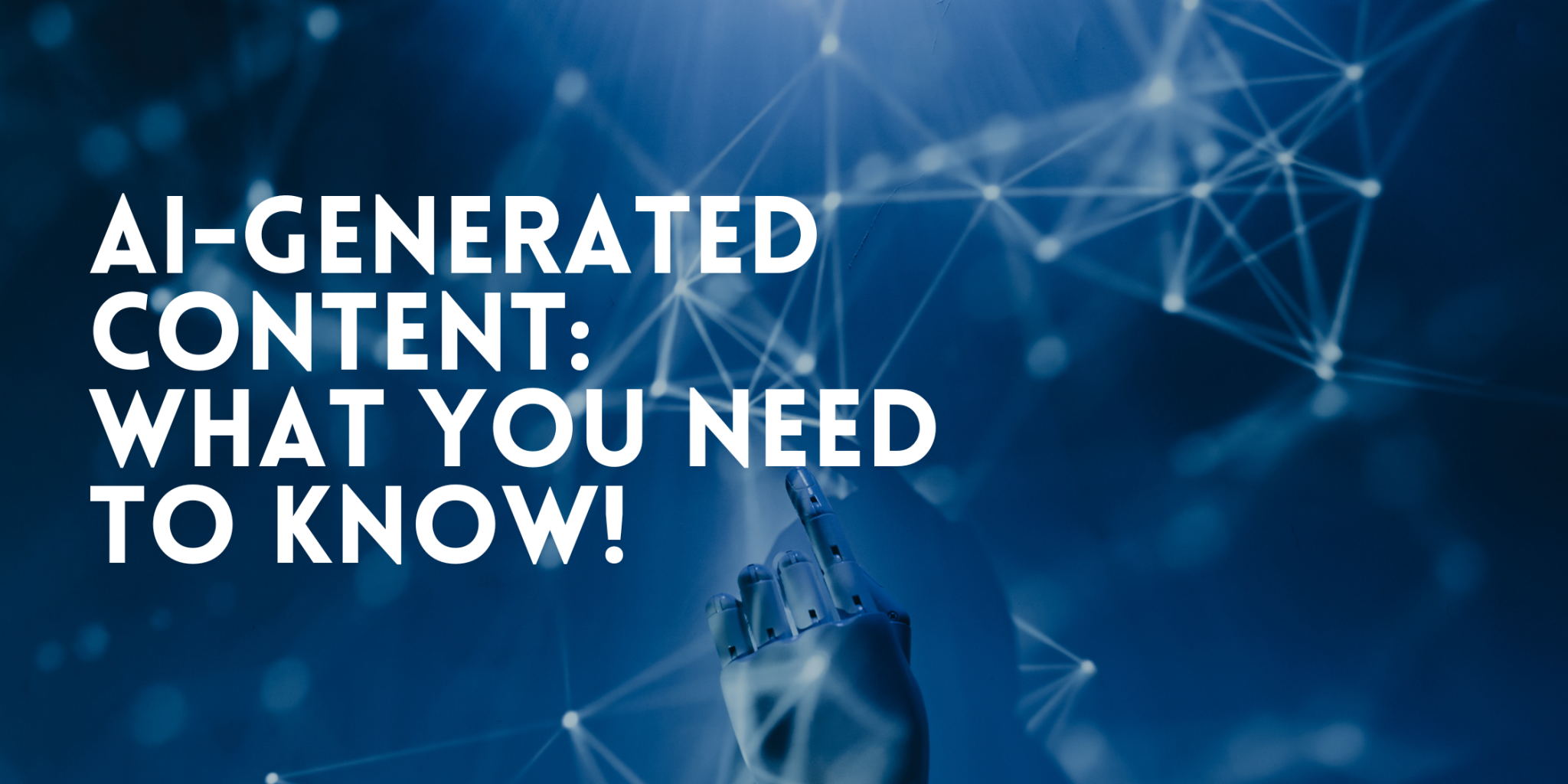AI-generated content: What you need to know!
Everyone is talking about Artificial Intelligence (AI) these days, as people use tools like ChatGPT to produce words and Stable Diffusion to generate art. We have reached the point where AI has evolved from a futuristic concept to a reality, and we’re already seeing AI revolutionise the manufacturing, customer service, and finance industries. Now it is also looking to shake up content marketing.
How is AI changing the content marketing world?
AI is transforming content marketing by providing new ways to create, deliver, and optimise content. With ChatGPT, for example, you can simply type in a query and the platform will generate an answer for you. This sounds like a great way to get content produced quickly, and on one level it is, however, AI does come with severe limitations, and it is important to understand that AI is a tool that can help you produce content. It doesn’t replace the need for human expertise in content design and strategy.
It is important to note that AI-generated content isn’t original, and originality is key for content marketing. Content generators simply aggregate information that they have scraped off the Internet and been trained on. It will pass a plagiarism check, because the AI has been trained to write an original version of the content, but it will contain no new ideas or a fresh perspective on what is already out there. It also means that AI is incapable of sharing opinions or challenging the mainstream perspective. It will have no voice of its own, and to the reader, it will seem perfectly readable, but also dull and predicable.
So, importantly, AI can never reflect your unique voice as a brand and is incapable of addressing the specific audience you want to reach.
Most professionals understand that AI is a great tool to leverage for research purposes. However, they will always take that content and rewrite it – generally heavily, to include commentary, a unique voice and personality, and expertise. In short, content marketing strategies cannot be entirely dependent on AI-generated writing if the end goal is high-quality content.
How are search engines responding to AI?
AI has caught the attention of Google, with them recently writing a piece on Google Search Central, ‘Google Search’s guidance about AI-generated content’. Google states that they reward high-quality content, however it is produced.
“Focusing on rewarding quality content has been core to Google since we began. It continues today, including through our ranking systems designed to surface reliable information and our helpful content system. The helpful content system was introduced last year to better ensure those searching get content created primarily for people, rather than for search ranking purposes.”
So, however you are creating content, it needs to be valuable, and helpful to the end user. Google mentions that “Appropriate use of AI or automation is not against our guidelines. This means that it is not used to generate content primarily to manipulate search rankings, which is against our spam policies.”
Keep in mind that Google does have a variety of systems in place, including SpamBrain, that can determine if AI is being used to spam search results.
The “death of the writer” at the hands of AI is exaggerated. As long as people value interesting, original, thoughtful, and entertaining content, humans cannot be replaced by this technology. At WebEagles, we keep up to date with new trends and technologies, and in fact, we welcome them. AI is an exceptional tool for gaining a baseline understanding of a topic or creating the skeleton and foundation for an article. However, from there, when you want content that will truly represent your brand and its unique value and voice in the market, the team of content writers are here to help you speak directly to your audience. For more information, give us a call on 1300 123 808.


